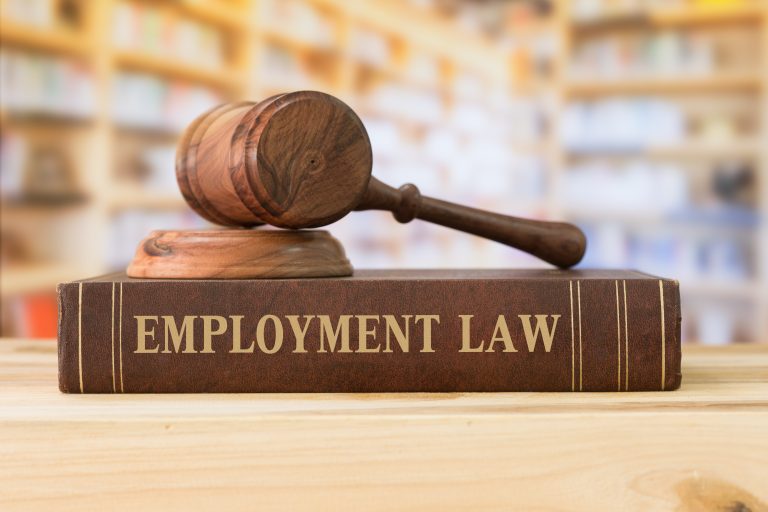Social media is nearly inescapable in 2022. Not only is it one of the quickest ways to connect with friends and family, but many of us rely on these platforms to stay up-to-date on news stories, buy the products and services we need, and even find job opportunities.
But just as social media giveth, social media can also taketh away. If you aren’t careful about what you post, you could end up facing serious consequences – especially as it relates to your employment.
As a private citizen, you have a right to voice your opinion. But that doesn’t mean your employer has to like or stand by what you say. Here’s what you need to know so both you and your employer can stay out of social media hot water.
Divisive Opinions and Job-Related Complaints = Red Flags For Employers
You might like to think you know what to avoid posting on social media. But according to Semify’s 2021 Social Media Conduct Survey, 33.15% of participants said they sometimes or frequently share content related to divisive issues like politics or religion on social media.
Doing so might seem fine if your circle largely agrees with your stance. However, you never know who’s watching (especially if your profiles are accessible to all!). Platform privacy settings aren’t always as straightforward as they seem, and even if your accounts are private, that doesn’t mean an acquaintance or co-worker won’t take offense.
In some cases, that could cost you your job. Social media-related firings aren’t uncommon and are typically completely legal, despite over 40% of survey respondents incorrectly believing that sacking someone for their social media presence is a First Amendment rights infringement.
But even if your current job is safe, don’t forget that your posts could keep you from getting hired. CareerBuilder’s social media survey revealed in 2018 that the top reasons candidates were denied job opportunities included inappropriate photos and videos, discriminatory comments, poor online communication skills, and disparaging mentions of an employer or coworker.
That last piece is key for both current employees and job seekers alike. While your network of friends and family might seem like a natural place to vent your frustrations, don’t forget that a screenshot is all too easy to take. Over 20% of participants in Semify’s survey said that they had passed on hiring a candidate based on their social media profiles, which speaks to a trend that’s become standard for many businesses.
Social Media Employment Screening Isn’t Always Bad
It might sound extreme to have an employer vet your social media presence, but it’s ultimately a step businesses take to reduce potential liability and protect their brand.
CareerBuilder’s survey found that 70% of employers surveyed were already using social media screening on potential hires. While nearly 60% of them said they’d considered and dismissed candidates whose content they found questionable, don’t assume that the answer is to delete your profiles entirely.
Interestingly, the same survey found that 57% of employers were less likely to call someone in for an interview if they couldn’t be found on social media. It’s almost as if you cease to exist if you can’t be tracked down online. Before they take the extra step of calling you in for an interview, prospective employers want to verify details on your resume and assess whether you might be a good fit for their culture. Social media provides an easy way to do that.
Keep in mind that your social media presence can actually bolster your chances of being hired. CareerBuilder found that 38% of employers said the social media screening process confirmed a candidate’s background and job qualifications, while nearly the same percentage noted that the candidate’s communication skills on social media helped land them the job. Social media can also showcase professionalism and creativity, two major pluses during the hiring process.
Although not everyone agrees that social media employment screening should be mandated, it’s hard to deny that it can be helpful for many businesses – and for jobs that require social media savvy or a public-facing component. Taking this measure early on can protect the company and the team down the line. Just as importantly, it can reward candidates for maintaining a professional image or save them from a bad cultural fit.
Watch What You Say on Social
Facebook and Twitter might seem like the perfect place to complain about a colleague or get riled up about political differences. But remember: your profiles aren’t as impenetrable as you’d assume. And if you don’t think your boss will care about what you say when you’re off the clock… think again.
In a world where “cancel culture” has become a terrifying buzz word for some, accountability is now being expected of employer and employee alike. Social media posts, comments, follows, and likes can now be easily accessed.
This isn’t to say you should live in fear! You can continue to enjoy all the great things that social media has to offer. But before you post something potentially offensive, wait 5 seconds and decide whether expressing yourself is worth your job. You may find it’s better to confide in a friend or family member in private rather than take the risk.
HR Future Staff Writer




















